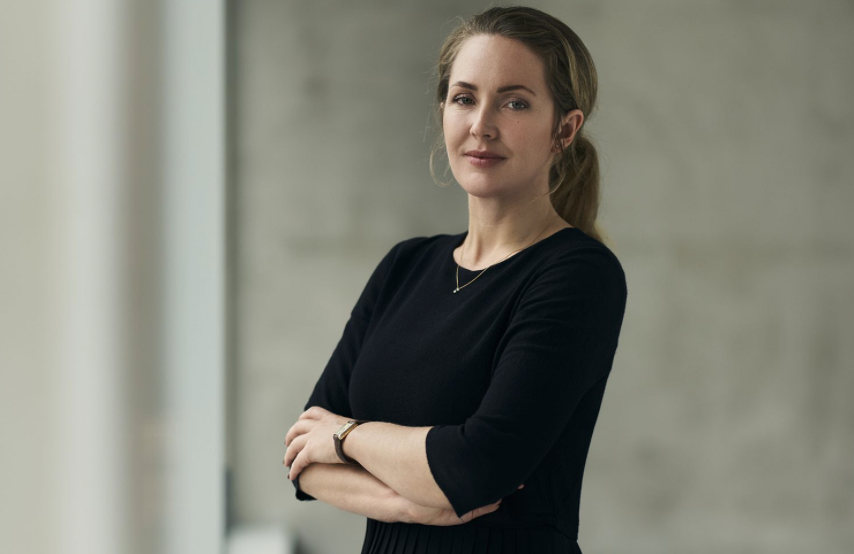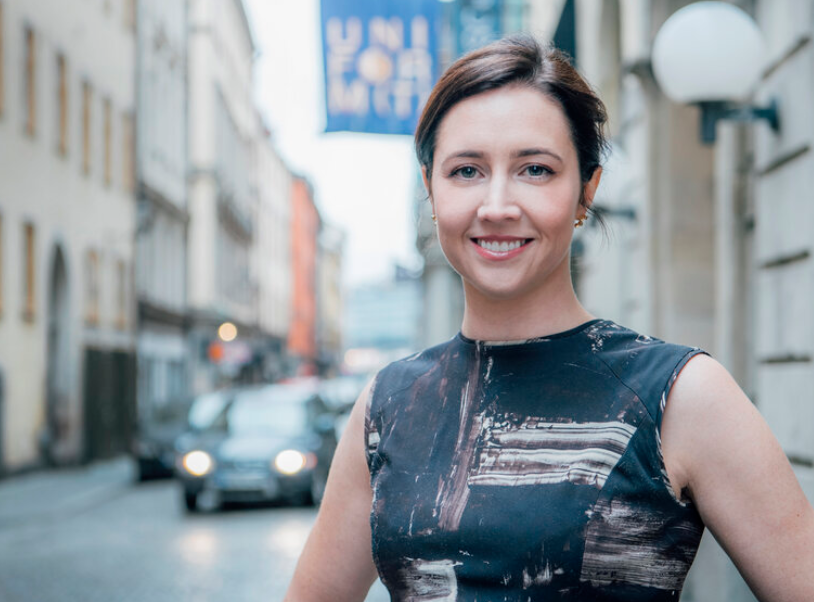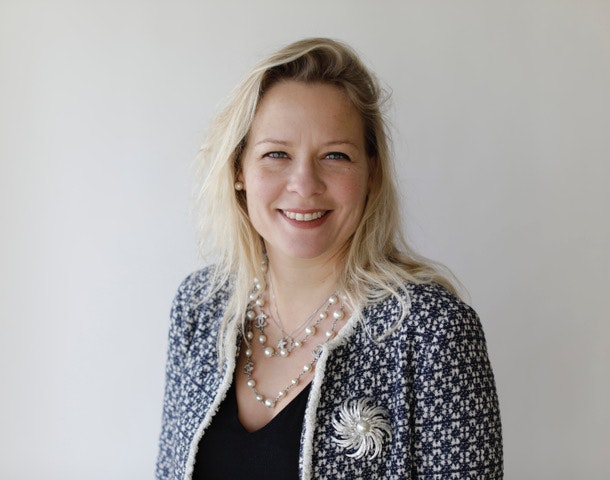World-class founders aren't just experts in their own companies. They are also generally credible sources of expertise about their sector and their peers.
In this vein, we asked seven of Europe's top fintech founders (and one from the US) to nominate early-stage startups they're watching closely this year.
The idea is to help bring promising startups out from under the radar, as is tradition at Sifted, and to identify the next batch of fintech leaders across Europe and beyond.
For fairness, we asked all founders to declare if their nominations contained any conflict of interests (ie. angel investments or clients).
Guillaume Pousaz, Checkout.com

ParentPay
I’ve always had an interest in education and the exponential nature in which it can benefit the world around us. ParentPay is building innovative solutions that remove the complexity of financial services within the education system, ultimately benefiting students, parents and schools. I also love their Nimbl product which is providing financial education to young people — a skillset that is needed more than ever to set young people up for success in adulthood.
Valentin Stalf, N26

Scalable Capital
The investment space is really interesting and one that’s seen a lot of movement from fintech disruptors looking to make investing more accessible, affordable and cost-effective through better technology. Scalable Capital already boasts over €2bn in client assets under management. It has strong backers and combines extensive sector knowledge and experience with the latest tech, a cool user interface and support.
Bitpanda
Staying within the investments space, a company from my hometown of Vienna that’s really starting to hit the mainstream through digitalising trading and investments is Bitpanda. The investments sector is such a traditional, old-fashioned and elite finance space and one ripe for change, so it’s great to see these guys really shaking things up and, in their own words, making investing as easy as ordering a pizza.
Billie
In most countries, small businesses make up a large part of national economies and GDP, yet this is an area that has been really undersupported so it’s nice to see fintechs developing innovative new tools and services in this space. A personal favourite of mine is Billie, which offers businesses an automated-invoicing platform to shake up the often too manual and time-consuming payments process. It’s also great to see a female cofounder making waves in the fintech industry.
Luko
Another interesting area is insurtech, with a lot of new fintechs taking the headache out of insurance for consumers. I like French company Luko. Not only does it offer super-fast, reliable and comprehensive personal insurance, but it’s also B Corp certified — giving back funds from unused claims to charities rather than lining their own pockets. It’s making the insurance industry simpler and more transparent, something we’re doing in banking.
Lupina Iturriaga, Fintonic

Indexa
Indexa Capital is a real success story. It is the leading independent investment service in Spain, with more than €700m AUM growing at 100% per year and profitable.
Darwinex
Darwinex allows traders to monetise not only their trades but also their strategy and performance. Top traders receive a flat percentage of the profits made by their 'followers', and can put investor capital to work as well as their own. The CEO says: "Think of it as a Hedge Fund as a Service for traders." (Note: I am indirectly associated with this through Ideon, a fintech hub that I am a partner in and helped spin Darwinex out.)
Ken Villum Klausen, Lunar

Public
This is probably the fintech I’m most excited about. Basically a fractional share marketplace. Amazing product and truly trying to open the stock market to everybody. They’ll take off in 2021! Extra points because they have a Danish cofounder and are backed by Will Smith! Magical.
Lendify
Swedish lender Lendify had a challenging 2020. During the first lockdown, they had to pause an investment round. However at the end of 2020, they signed a decent fundraise (around €30m, plus around €130m in debt for lending products), so they will be flying into the new year.
Albert
Albert began as an app focused on financial wellness in the US. Now they're gearing up for the prelaunch of their debit card, and it looks like they have a bright future, connecting banking, saving and investment.
Lanistar
It's an outrageous prediction for sure (read more about Lanistar's teething issues here). But if they are able to turn that massive attention to an actual business, it will be interesting to follow them.
Also want to see who top fintech investors are excited about? Click here
Jessica Holzbach, Penta

Lemon Markets
With Lemon Markets you can develop your own trading algorithms and control everything through an API. This is amazing and will be very interesting in the future.
Anybill
With Anybill, you simply get your receipt digitally on your smartphone. A super simple solution with so much added value. This company has so much opportunity to grow in the future.
Nick Bortot, Bux

Dyme
One of my New Year's resolutions was to spend less time on my phone, so on January 1 I removed over 50 apps. One of the few apps (apart from Bux!) that survived was Dyme. Dyme can access all your bank accounts and compare how much you pay for electricity, subscriptions and all kinds of fixed costs that you often lose sight of. It tells you when you're paying too much and — the best part — they renegotiate all the contracts and subscriptions for you. There is nothing you need to do yourself. Dyme has literally saved me hundreds of euros in 2020 alone. They're now in the top 10 most-downloaded finance apps in the Netherlands.
Bunq
Neobanks like Revolut and N26 get so much attention, whereas there is a third neobank that is low key, but very effective. I am talking about the Netherlands' Bunq. With a team that is a fraction of the size of most neobanks, I am sure they will be a serious contender in the future. Bunq is also different from most neobanks in the sense that there is a lot of focus on sustainability and reducing our CO2 footprint, which in my opinion is a great and noble cause that more fintechs should follow.
Yapily
Yapily leverages PSD2 and open banking to connect into many European banks. Connecting with Yapily allows B2C companies to offer their customers direct access to their personal bank. At Bux, we are actually a customer of Yapily, allowing users to make a deposit from their account at Deutsche
Bank, so I can vouch that it's good!
Guillermo Vicandi, Bnext

NEA
NEA is a technology company building the next corporate credit card for Mexican companies. Powered by a cost control and savings platform, NEA aims for companies to manage payments and subscriptions, build strategic budgets, and eliminate expense reports. Focusing on specific local pain points, NEA is redesigning corporate spend in Mexico.
Receeve
Receeve is a digital debt-servicing platform based in Hamburg. Non-performing loans have been under control during the pandemic for most lenders. However, this might change when governments decrease their subsidies and support to businesses and the population. Receeve enables an automatic and effective recovery of bad debt which I believe will increase substantially in the coming years. Receeve’s B2B2C approach is unique as it is able to predict and act on delayed payers before they become defaulting.
Zach Perret, Plaid

Flux
Flux is a startup that collects receipt data, providing additional insights to fintech companies and financial institutions. The company, in my view, represents the growth and maturation of the fintech ecosystem.
Codat
As the UK begins the transition from open banking to open finance, Codat is a prime example of the benefits an open finance future could hold. Codat provides accounting data to simplify lending and business connectivity for small businesses.
Marshmallow
This is a UK app-based car insurer that streamlines the process. Many industry developments in 2020 proved that 'fintech is everywhere' is much more than a catchphrase, and Marshmallow is one example of how fintech will reshape consumers' lives well beyond finance.



